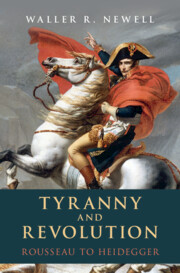2 - Redeeming Modernity
The Erotic Ascent of Hegel’s Phenomenology
Published online by Cambridge University Press: 28 May 2022
Summary
Kant and Schiller each take up one side of Rousseau so as to heal the rift between nature and freedom: Kant stressing our capacity to repress our natural passions, Schiller stressing Rousseau’s Romanticism and the harmony of freedom and sentiment in aesthetic education. Yet the free self and the natural self remained divided within each individual. Hegel healed this division through a synthesis of Kantian moral rigor and Schillerian love of beauty in which the concept of human nature was jettisoned altogether in favor of a totally historicized understanding of human existence. Hegel also resolved the Rousseauan conflict between our lost natural happiness and the alienating qualities of civilization by relocating Rousseau’s Golden Age of the remote past to the final outcome of civilizational progress, redeeming its alienating aspects as necessary for our fulfillment today. Hegel’s dialectic of Spirit includes his understanding of the ancient Greek polis, his critique of the Rousseau-inspired Jacobin Terror, his defense of passionate political ambition against Kantian moral purity, and his claim to have reconciled reason and revelation as the “self-actualization of God” as history. Hegel’s account of historical progress ignited an intense debate among his successors.
- Type
- Chapter
- Information
- Tyranny and RevolutionRousseau to Heidegger, pp. 40 - 111Publisher: Cambridge University PressPrint publication year: 2022



